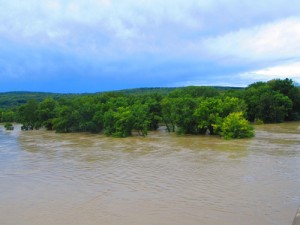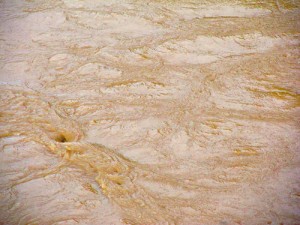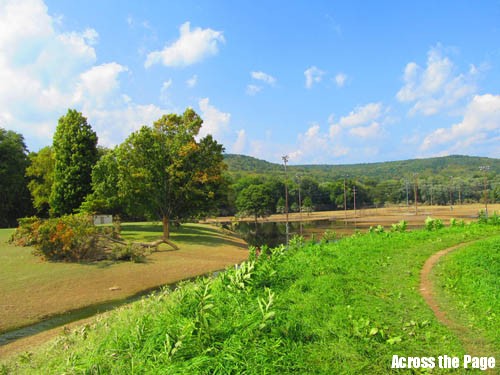Not subject
 The very first essay I read by Wendell Berry was “The Rise,” from his collection The Long-Legged House. It describes a canoe ride on the Kentucky River during one of its winter rises.
The very first essay I read by Wendell Berry was “The Rise,” from his collection The Long-Legged House. It describes a canoe ride on the Kentucky River during one of its winter rises.
Of course I thought of it this week as my region struggles in the aftermath of a truly catastrophic flood. It’s as though the Susquehanna has painted the whole area with filthy residue, and one wonders how the large and complicated problems cropping up as a result will be surmounted.
I reread Berry’s essay yesterday and found some of my own feeling about “our” river eloquently represented in these two paragraphs:
These long views that one gets coming down it show it to move majestically. It is stately. It has something of the stylized grandeur and awesomeness of royalty in Sophoclean tragedy. But as one watches, there emanates from it, too, an insinuation of darkness, implacability, horror. And the nearer look tends to confirm this. Contained and borne in the singular large movements are hundreds of smaller ones: eddies, whirlpools, turnings this way and that, cross-currents rushing out from the shores into the channel. One must simplify it in order to speak of it. One probably simplifies it in order to look at it.
There is something deeply horrifying about it, roused. Not, I think, because it is inhuman, alien to us; some of us at least must feel a kinship with it, or we would not loiter around it for pleasure. The horror must come from our sense that, so long as it remains what it is, it is not subject. To say that it is indifferent would be wrong. That would imply a malevolence, as if it could be aware of us if only it wanted to. It is more remote from our concerns than indifference. It is serenely and silently not subject — to us or to anything else except the other natural forces that are also beyond our control. And it is apt to stand for and represent to us all in nature and in the universe that is not subject. That is its horror. We can make use of it. We can ride on its back in boats. But it won’t stop to let us get on or off. It is not a passenger train. And if we make a mistake, or risk ourselves too far to it, why then it will suffer a little wrinkle on its surface, and go on as before.
Mark Twain speaks of something similar in Life on the Mississippi, when he writes of the river changing course in ways that make human boundaries irrelevant. A town that goes to bed in one state wakes up the morning after a flood in another state because the river resolved itself along a different path. It is, as Berry says, “not subject.”
 On the day after the flood, my husband and the girls and I drove down to look at the Susquehanna, and it was truly horrifying: those brown eddies and currents, the volume of water, the sense of inevitability as it barrelled along, the treetops where previously there had been shoreline. It inspired horrible imaginations. I kept a hand on each daughter and made sure they were back from the guardrails, and every muscle was tensed until we were back in the car and moving away from it.
On the day after the flood, my husband and the girls and I drove down to look at the Susquehanna, and it was truly horrifying: those brown eddies and currents, the volume of water, the sense of inevitability as it barrelled along, the treetops where previously there had been shoreline. It inspired horrible imaginations. I kept a hand on each daughter and made sure they were back from the guardrails, and every muscle was tensed until we were back in the car and moving away from it.
Berry’s comment that we are apt to attribute its characteristics to “all that is not subject in nature and the universe” interests me. I thought of the woman who cut my hair the other night. “Two hundred-year floods in five years?” she said incredulously. “In places where it hadn’t flooded before? Gee why could that be?” She shook her head. “Somebody’s angry!”
I suppose it’s a back-handed compliment to God that people attribute acts of power, even destructive power, to him rather than to the devil. But it’s revealing of the concepts of God that were in place before the catastrophe. I’m with those who read natural disaster as a result of earth’s fallenness, and who see God as an ever-present help in this time of trouble. Surely this is one of the main jobs of the church in these days — clarifying God’s character by extending the arm of mercy and compassion in his name. He is not serenely remote from our concerns. It’s true that like the river, he is “not subject.” But to be subject to him is to be in the ultimate shelter.



